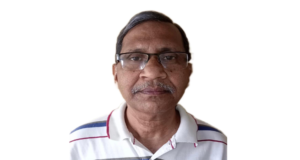
By M C Behera
(Professor, Rajiv Gandhi University; email: mcbehera1959@gmail.com)
There is nothing political in this write-up while citing the names and statements, but public anxiety towards understanding the inanity of political logic and expectation for betterment.
Rahul Gandhi was disqualified on 24th March 2003 from the Parliament following a two-year conviction by the Surat court on a defamation case. There is no evidence of a legality lapse. Unfortunately, Congress labeled the fixation charge as the first judge of the case was transferred. Is transfer undemocratic? If a judge can be fixed, is it not a breach in our system? If the government can do anything, then why to invoke democracy and the Constitution when any government can be despotic? Rahul Gandhi claims: He is not Savarkar but Gandhi, he will not apologise.
Savarkar had his opinion and ideology. Democracy demands respect or opposition to an ideology, not to the person. Is it not arrogance and undemocratic practice to oppose the person? The next question is about the title Gandhi. Which Gandhi? In no way he is biologically or socio-culturally related to Mahatma Gandhi. His grandfather was Feroz Jehangir Ghandy, who changed the spelling of Ghandy to Gandhi. By changing the spelling, did he inherit biological and socio-cultural recognition of Mahatma Gandhi? Then why to take pride in a surname which has no originality? People attach emotion and respect to the title Gandhi of Mahatma Gandhi. Is it not a betrayal of people’s emotions and faith while glorifying a title which is similar but with a different root? Is it not an insult to the actual title? Is not it an insult to the ancestor whose title carries his legacy but is used in the context of a different legacy?
On 26th March 2003, Priyanka Gandhi made some statements. She invoked Ram and Pandavas as dynasties to counter BJP allegations of dynasty labelled against their family. The statement has more than one misleading implication. Which family, she means, parental or in-laws’? Is it not confusion about India’s traditions? Or is it a well-thought-out design to bring Vadra family into the fold of ‘Gandhi’ in the way Ghandy is used for real Gandhi?
Ram belonged to the monarchical period of history. Is monarchy comparable with democracy? Nevertheless, being a dynast Ram was democrat in his action. It is evident from his respect to public opinion and abandonment of his wife. He did not subdue public opinion, which he could have done! How much Pandavas carried the legacy of dynasty can be understood from the history of Bharat dynasty. Pandavas and Kauravas did not inherit dynasty rule due to biological connection with Bharat! Moreover, they were popular in the public. The basis of their rule was ‘dharma’, not the monarchical power bred despotism.
Further, she claimed: in Hinduism there is the tradition that the public respond to arrogant leader. Absolutely correct. She might have got the example from her parental family when Indira Gandhi lost the election after an emergency. It was the arrogance of Rahul Gandhi that tore the bill and insulted the Prime Minister in 2013. He could not lead Congress to victory after that. Unfortunately, she shifted the family legacy to a different point! Moreover, her statement is self-contradictory. If ‘people respond’, and it is inevitable in Hinduism, then what is the need to echo it? Is it to ensure herself that she has faith in people? Or does it mean that she has no actual faith in Hinduism and in people’s wisdom, so that she wants to assure by making the statement? When one takes his wallet several times out of the pocket, rest assured that the wallet is empty.
She claimed her family’s contributions in nurturing democracy in India. History speaks otherwise. Nehru became Prime Minister despite majority support to Patel. This apart there is logical aspect of it. Is concentration of power in the family a mark of nurturing democracy? Concentration of power in a family generations after generation is a characteristic of dynastism, not democracy. The tendency to continue with power through generations in a family amounts to denial of power to others. It lacks a sense of respect to equal sharing of power that stands at theroot of democracy.
Theoretically, all have equal rights to political power. Then why others are at bay, and why power remains in a few families? Is it not a sharp practice in the name of democracy? Is it not arrogance to claim that the inter-generational power concentration in a family is the result of people’s love for them? If the public loves a contemporary generation then why to invoke the contributions of previous generations? Does not the contemporary generation have anything worth in them so that they take shelter in the works of past generations? When the family in question has a legacy to cash upon, others do not have so. Invocation of the past legacy is undemocratic as it blurs the present merit. The contest, undoubtedly, becomes unfair between one with blessings of a legacy and the other without it.
When a party is in opposition, it cries misuse of ED, CBI and other agencies for vendetta. This is the normal scenario in Indian politics. Can we take it for granted that the government misuses agencies? Then the problem is not the government, but the weakness in the system. Ironically, every opposition blames the government, but no one tries to correct the loopholes in the system that makes the government powerful to misuse agencies. Action against opposition by a government, whatever may be the intention, indicates misuse of power and involvement in corruption. That is why a lay man wonders, how come a poor man becomes millionaire once in power? Not only the man, his family members and relatives also become millionaire. How?
Rahul Gandhi stated: My Religion is Truth, a declaration of Gandhiji. Obviously, he proves to be a Gandhian. But Ganhiji also told: ‘I saw that a man of truth must also be a man of care. This was the first and last instance of my carelessness in school’. Is Rahul Gandhi careful in his use of tongue? He has so many apologies in the court to his credit for wrong tongues. Is a habitual careless man an ardent follower of Gandhiji? Is not it hypocrisy?
Another statement is made following the disqualification. It reads: They (the government) try to crush those who raise questions. The disqualification is linked to Rahul Gandhi’s question on Adani and PM Modi relations. The disqualification, as has been stated earlier, followed conviction according to the law of the country. The case for his conviction was old and came after several court proceedings. Could it be possible to convict a person instantly by fixing a date of hearing? Then why not bring the lapse in the working of the court to public domain to prove that Rahul Gandhi was convicted due to his question? Why creating gossips and confusing the public who believe in their leaders, but may not know working of the court. Is it not misdirecting public sentiment? Is not it like creating a crisis and using it to the advantage?
We find opposition uniting against the issue of conviction and disqualification. Many of these parties did not accept leadership of Rahul Gandhi and no third front could be formed. Unfortunately, they do not unite to correct the loopholes in the system. Does it mean that in the name of supporting an allegation or convicted person these parties would create a pressure group to escape action for their involvement in corruption? It cannot be ruled out, for the parties who have come together have their members under surveillance. Except fighting for a clear image for themselves, are not there any other means to prove that the government is wrong? Does this fight mean to sustain the practice of corruption? What is the picture of development, national goal and pride for these political parties that they would present before the public?
There is another statement by Priyanka Gandhi relating to the public. It reads: Are not they able to see what is happening? When people respond to arrogance and one has conviction, then why this doubt? Why should people see the way one expects? Is it not arrogance and undemocratic when one does not respect the way people see? Does one mean that people are not sensitive to happenings?
Rahul Gandhi’s statement is contested. Does it mean that he is contested? He claims that ‘he will fight even outside the Parliament’. He has every right to fight as an individual. Why Congress is made the platform? If Congress fights why is this individual claim? Is it not arrogance? It is a known fact that individual is not important, but the idea is. When the individual is epitomised above the ideology, then democracy dies under the weight of arrogance. It happened when it was told that India is Indira and Indira is India. Is this the legacy Rahul Gandhi inherits, for it reflects clearly in his statement ‘I will fight’?
Questions are unending. But an end to gossip, manipulation of public sentiment, contradictory and irresponsible statements, and creation of confusion is expected from opposition for a better future for the country.




